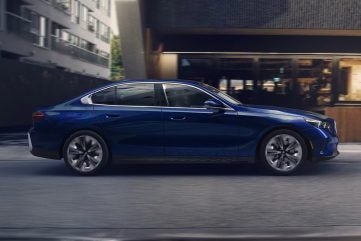
Sales of imported light passenger vehicles in South Korea fell by 25% to 16,237 units in February 2024 from 21,622 units a year earlier, according to the Korea Automobile Importers & Distributors Association (KAIDA). The data did not include some non affiliated brands.
This followed a 19% decline in January with demand affected by high interest rates and strong competition from domestic manufacturers. Deliveries last month were also held back by fewer working days due to the Lunar New Year holidays.

Discover B2B Marketing That Performs
Combine business intelligence and editorial excellence to reach engaged professionals across 36 leading media platforms.
Domestic sales were also down sharply in February, by 18%, but this mostly reflected production line stoppages at Hyundai Motor for maintenance and retooling as well as the new year holidays. Overall demand for new vehicles in South Korea remained sluggish, however, with consumer spending affected by the sharp interest rate hikes by the central bank over the last few years from 0.5% to 3.5%.
Import sales this year have also been affected by shipping delays resulting from rising geopolitical tensions in the Red Sea which has also affected some exports from South Korea.
Deliveries of imported vehicles in the first two months of 2024 were down 22% at 29,320 units from 37,844 units a year earlier asGerman owned brands accounted for 74% of the total.
Segment leader BMW reported a 16% decline to 10,419 units year to date (YTD), helped by the recent arrival of the new 5-series sedan and its strong EV range while Mini sales were up by 50% at 1,298 units. Volkswagen sales fell 28% to 515 units and Porsche sales were down 19% at 1,505 units and Audi sales plunged 90% to 447 units.
Mercedes-Benz reported a 22% fall in sales to 6,523 units YTD, despite the launch of the new E-series sedan in January, while Volvo sales increased 5% to 1,926 units underpinned by the recent launch of the EX30 battery-powered compact SUV.
Toyota sales surged 58% to 1,522 units, helped by the recent introduction of the RAV4 plug in hybrid (PHEV) and the Crown hybrid crossover, while Lexus sales were flat at 1,917 units.
Major import brands including Mercedes-Benz, BMW, Porsche and Volvo were investing heavily to strengthen their EV charging networks to increase their share of the country’s plug-in market.
Industry data showed imports accounted for almost 27% of South Korea’s battery electric vehicle (BEV) market last year, up from 3.5% in 2022.






